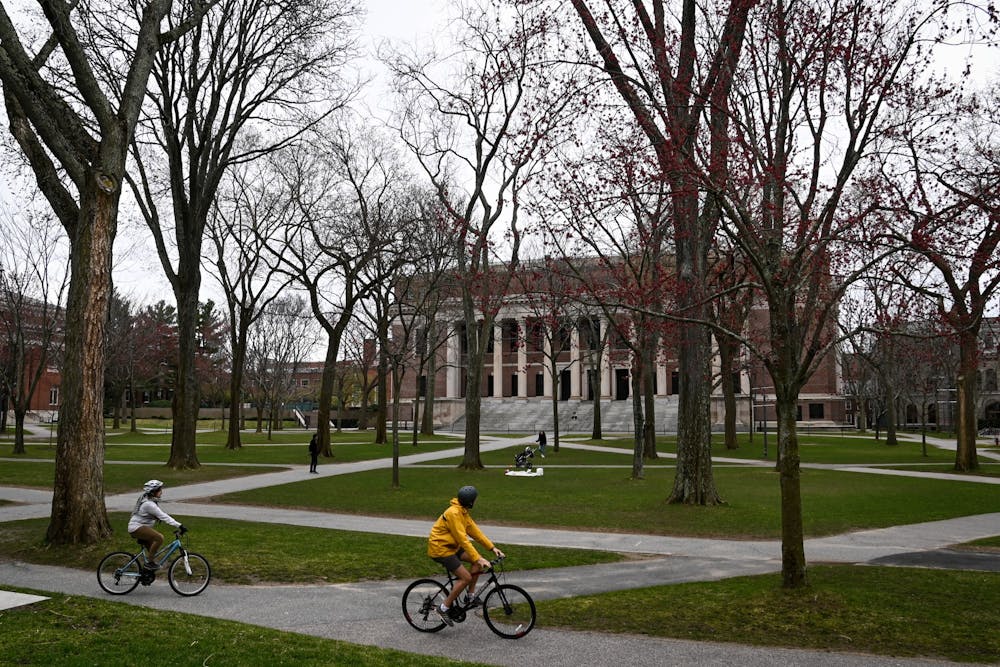
Harvard University announced plans to allow about half of its undergraduate population to live on campus this spring, although instruction will continue remotely.
In an email to the Harvard community on Tuesday, University leadership announced that there will be 3,100 individual bedrooms available to students next semester. The University will follow a phased approach to provide students living on-campus with access to academic facilities, such as libraries and research laboratories, as well as campus-based engagement activities.
First priority for housing will be given to seniors, followed by juniors who completed the fall 2020 semester, students with learning environment needs that require them to live on campus, students who were approved to remain in housing past Nov. 22, and students who live in time zones four or more hours distant from Eastern Standard Time. Most sophomores will not have the opportunity to return to campus.
Those who do return will be required to comply with the public health practices outlined in the Community Compact, including testing, contact tracing, physical distancing, wearing face coverings, and avoiding large social gatherings.
Harvard administrators wrote that their decision to increase the number of students learning in residence is a result of the “overwhelmingly positive outcomes” for the fall residential program which allowed about 25% of undergraduates to return to campus. The University had a total of 38 COVID-19 cases and there was no evidence of transmission among the undergraduate residential population, according to the email.
Of the three possible spring semester scenarios Harvard announced in July, the University chose the option that invites the largest number of students to campus. All undergraduate students who spend the entire semester learning remotely away from campus will be eligible to take two courses at the Harvard Summer School this summer with waived tuition, the email reads.
Harvard has also scheduled five "wellness days" distributed throughout this semester instead of spring break. Classes will not meet and faculty have been advised to avoid scheduling major assignments and assessments on those days, according to the email.
On Wednesday, Penn also announced plans to give students five days off throughout the semester in place of spring break following student backlash over a lack of breaks during the 2020-21 school year. In the spring, Penn plans to invite most students back to campus with the majority of classes still being taught remotely.
The Daily Pennsylvanian is an independent, student-run newspaper. Please consider making a donation to support the coverage that shapes the University. Your generosity ensures a future of strong journalism at Penn.
Donate



